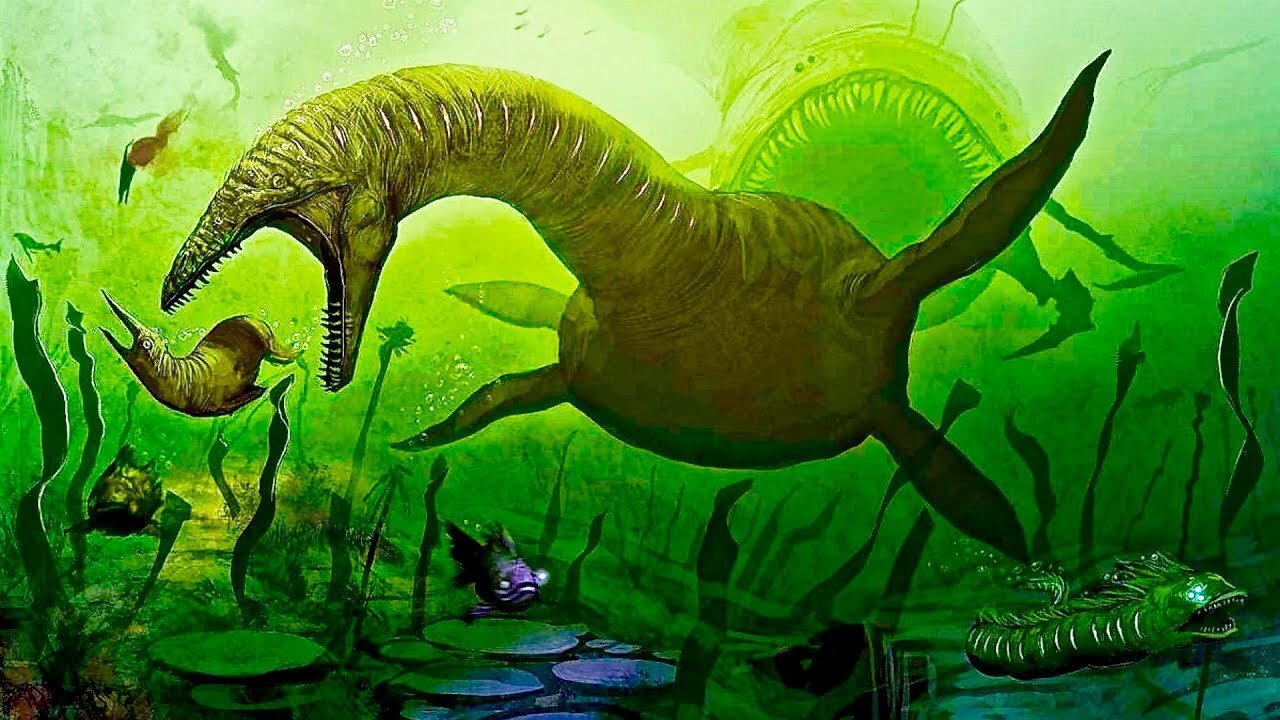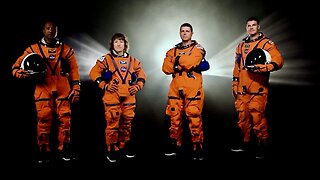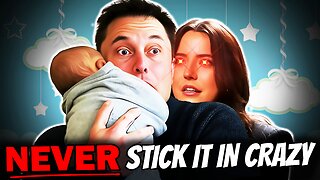Premium Only Content

Great Animated History of Human Evolution on Earth from Single Cell Organisms
Animation timeline of evolutionary history of life. All life on Earth evolved from a single-celled organism that lived roughly 3.5 billion years ago, a new study seems to confirm. The study supports the widely held "universal common ancestor" theory first proposed by Charles Darwin more than 150 years ago. Using computer models and statistical methods, biochemist Douglas Theobald calculated the odds that all species from the three main groups, or "domains," of life evolved from a common ancestor—versus, say, descending from several different life-forms or arising in their present form, Adam and Eve style.
The domains are bacteria, bacteria-like microbes called Archaea, and eukaryotes, the group that includes plants and other multicellular species, such as humans.
The "best competing multiple ancestry hypothesis" has one species giving rise to bacteria and one giving rise to Archaea and eukaryotes, said Theobald, a biochemist at Brandeis University in Waltham, Massachusetts.
But, based on the new analysis, the odds of that are "just astronomically enormous," he said. "The number's so big, it's kind of silly to say it"—1 in 10 to the 2,680th power, or 1 followed by 2,680 zeros.
Theobald also tested the creationist idea that humans arose in their current form and have no evolutionary ancestors.
The statistical analysis showed that the independent origin of humans is "an absolutely horrible hypothesis," Theobald said, adding that the probability that humans were created separately from everything else is 1 in 10 to the 6,000th power.
Putting Darwin to the Test
All species in all three domains share 23 universal proteins, though the proteins' DNA sequences—instructions written in the As, Cs, Gs, and Ts of DNA bases—differ slightly among the three domains (quick genetics overview).
The 23 universal proteins perform fundamental cellular activities, such as DNA replication and the translation of DNA into proteins, and are crucial to the survival of all known life-forms—from the smallest microbes to blue whales.
A universal common ancestor is generally assumed to be the reason the 23 proteins are as similar as they are, Theobald said.
That's because, if the original protein set was the same for all creatures, a relatively small number of mutations would have been needed to arrive at the modern proteins, he said. If life arose from multiple species—each with a different set of proteins—many more mutations would have been required.
But Theobald hoped to go beyond conventional wisdom.
"What I wanted to do was not make the assumption that similar traits imply a shared ancestry ... because we know that's not always true," Theobald said.
"For instance, you could get similarities that are not due to common ancestry but that are due to natural selection"—that is, when environmental forces, such as predators or climate, result in certain mutations taking hold, such as claws or thicker fur.
Biologists call the independent development of similar traits in different lineages "convergent evolution." The wings of bats, birds, and insects are prime examples: They perform similar functions but evolved independently of one another.
But it's highly unlikely that the protein groups would have independently evolved into such similar DNA sequences, according to the new study, to be published tomorrow in the journal Nature.
"I asked, What's the probability that I would see a human DNA polymerase [protein] sequence and another protein with an E. coli DNA polymerase sequence?" he explained.
"It turns out that probability is much higher if you use the hypothesis that [humans and E. coli] are actually related."
No Special Treatment for Evolutionary Theory?
David Penny, an evolutionary biologist at Massey University in New Zealand, called the grand scope of Theobald's study "bold."
Penny had been part of a similar, but more narrowly focused, study in the 1980s. His team had looked at shared proteins in mammals and concluded that different mammalian species are likely descended from a common ancestor.
Testing the theory of universal common ancestry is important, because biologists should question their major tenets just as scientists in other fields do, said Penny, who wasn't part of the new study.
"Evolution," he said, "should not be given any special status."
Music: Root Chakra Planet by Dhruva Aliman
Amazon - https://amzn.to/3ex2DEb
https://music.apple.com/us/artist/dhruva-aliman/363563637
https://dhruvaaliman.bandcamp.com/album/neptunes-overtone
http://www.dhruvaaliman.com/
Spotify - https://open.spotify.com/artist/5XiFCr9iBKE6Cupltgnlet
#evolution
#history
#biology
-
 8:11
8:11
Seeker Land
3 days agoNASA Sends Astronauts To Moon In 2026 - Artemis II Mission
1281 -
 LIVE
LIVE
vivafrei
3 hours agoKash Patel Confirmation Hearing LIVE! Jan. 6'er Kicked Out of CPAC? DOGE Wins in Court? & MORE!
10,738 watching -
 2:05:00
2:05:00
Steven Crowder
3 hours ago🔴 Trump Slams Dictator Zelensky: Why He NOW Has a Point
203K176 -
 LIVE
LIVE
LFA TV
16 hours agoKASH CONFIRMATION & PRESS BRIEFING! | LIVE FROM AMERICA 2.20.25 11AM
6,366 watching -
 2:14:42
2:14:42
Matt Kohrs
12 hours agoIt's A Bull Trap, Partner! || The MK Show
30.7K2 -
 40:25
40:25
BonginoReport
6 hours agoTrump Cancels Zelensky’s 'Gravy Train' (Ep.144) - 02/20/2025
80.6K120 -
 2:59:17
2:59:17
Wendy Bell Radio
7 hours agoLONG LIVE THE KING
79.1K61 -
 1:27:55
1:27:55
Game On!
19 hours ago $6.63 earnedThe BIGGEST Hockey Match of the Century: USA vs Canada!
95.9K12 -
 17:20
17:20
Bearing
3 hours agoElon Musk's Baby Mama Drama 😧 Did he Stick it in CRAZY??
26K12 -
 1:10:27
1:10:27
2 MIKES LIVE
4 hours agoTHE MIKE SCHWARTZ SHOW with DR. MICHAEL J SCHWARTZ 02-20-2025
31.5K2